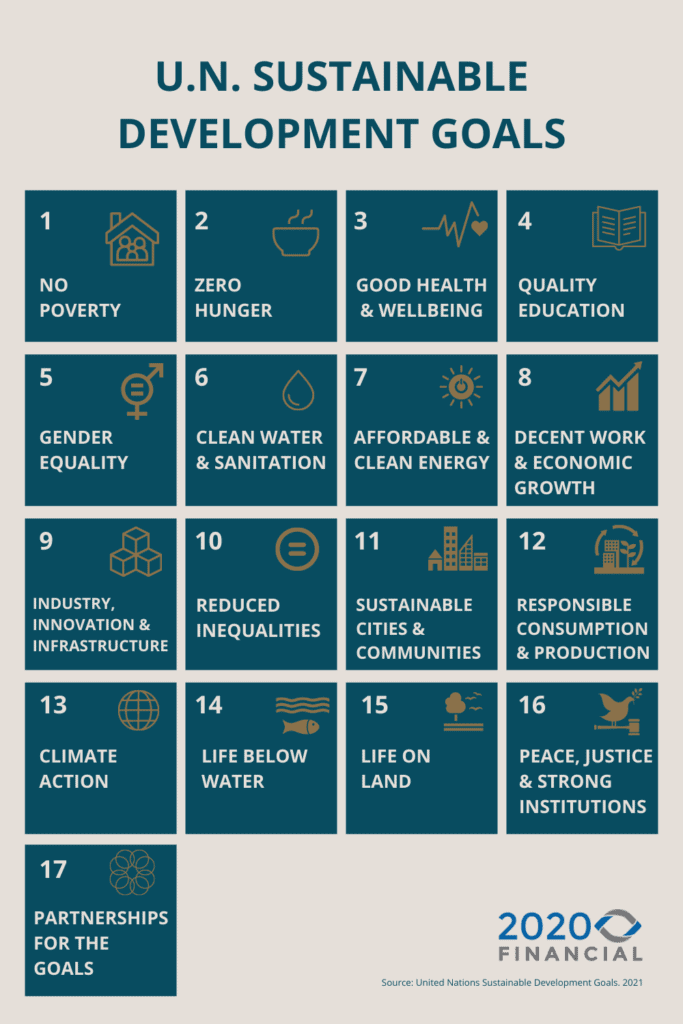There’s growing pressure on businesses to move towards a more equitable, ethical and sustainable way of operating and in turn for investors, there’s mounting pressure and appetite for socially responsible investing.
But what exactly is socially responsible investing and how do you tell the difference between that and its counterparts? When it comes to Socially Responsible investing vs ESG, what’s the difference? And which is better?Our simple guide will help you sort the wheat from the chaff.
Socially responsible investing defined
Socially responsible investing, also known as ethical investing, is all about doing good while making a return on your investment. It plays an integral role in the financial world and has a strong focus on human development.
When it comes to the scale of what is deemed an ethical manner of investing, socially responsible investing sits at the higher end of the scale. It is considered a harder and more expensive practice, but it is one with an enormous impact. But, how does it compare to other forms of investment?
Environmental, Social And Governance Investing explained
ESG investing refers to the three categories of criteria used to assess companies when investing responsibly:
- ‘E’ stands for ‘environmental’ factors, such as carbon emission and water management;
- ’S’ stands for ‘social’ factors, such as employee welfare, diversity and inclusion;
- ‘G’ stands for ‘governance’ factors, such as business ethics and corruption.
Socially responsible investment is nothing new, it actually originated in the 18th century, when religious groups were excluding “sin stocks” such as liquor, tobacco, gambling or slave trade from their portfolio.
During the 1970s, the number of Responsible Investment funds continued to grow, focussing primarily on social aspects and excluded companies that were involved in the production of armaments for the Vietnam war or doing business with the Apartheid-based South Africa.
Today, the UN Sustainable Development Goals address the issues the UN sees as most challenging to our world; these include gender equality, climate action, sustainable cities and communities and good health and wellbeing. They are an enormous driving force in encouraging more responsible investing; profitable companies that genuinely do good too.
The hope is that this method will even the playing field and redistribute global wealth. Fundamentally, it strives to bring about a fairer, more equal world.
RELATED: ESG INVESTING | Ethical investing Definitions

Is ESG socially responsible?
ESG isn’t necessarily socially responsible because firms don’t have to meet specific targets across all 17 of the UN Sustainable Development Goals. This means that while a company may have a strong score when it comes to its environmental impact, it could have an incredibly poor record of gender equality, reducing poverty or hunger amongst its workforce or communities.
And this is where the loopholes come into play. While ESG aims to be socially responsible, there is no requirement to ‘do good’ across the board. This makes it possible for a company to put all of their eggs in one basket, shout about it loudly, and then swiftly sweep other (far from socially responsible) activity under the carpet.
Similarly, a company can use ESG ratings to claim that they are meeting goals, without shining a light on the many ways they are working against them. It is, therefore vital that you do your research – or invest in the support of an expert – when choosing where to invest if you want to make sure it is a socially responsible fund. It’s one thing saying you’re socially conscious on paper, but it’s a whole different story in practice.
What’s the difference between ESG and Socially responsible investing?
The terms can be interchangeable but they aren’t exactly the same thing. Socially responsible investing infers a higher standard than ESG investing.
Socially responsible investing looks at a company’s impact as a whole entity. B-Corp is the highest level of this form of purpose-driven business and is the golden standard to look out for in your investments.
Both forms of investment focus on using the power of business to contribute to global issues; however, socially responsible investing takes it to the next level. If you see the two on a scale, while ESG is a fantastic starting point, socially responsible investing is that deeper dive, more holistic and results-driven approach.
Is ESG Investing good?
ESG investing is a great way to make a big profit while having a positive impact on the world. This form of investment strategy is good not only for your financial future but for the people, communities and planet around you.
ESG investing encourages profitable businesses that are also conscious and compassionate ones; those that value gender and racial equality, education, the environment, mental health and wellbeing and worker’s rights.
There’s a growing body of evidence that also points to a relationship between sustainability initiatives and strong business results. The University of Oxford found that companies with better sustainability practices tended to have better operational performance, as well as offering superior stock price performance relative to companies rated lower for ESG.
However, while any effort to improve business performance and practices against the UN’s 17 Sustainable Goals is a step in the right direction, if you really want to commit to being an ethical and conscious investor (or human being!), then the goal should be to embrace socially responsible investing. It’s the prime route for ethical investing as it considers a business as a whole, rather than through its individual parts.
Nonetheless, by investing in a fund with a high ESG rating, you can realistically assume that you are also investing in one with excellent operational functionalities, happier staff, long-term stability and a higher running standard. Cue a more reliable investment with exciting potential.
But (and there’s always a but), do your research first. Don’t just trust an investment opportunity based on what you see written in black and white. If making a difference through your investments really matters to you, then be sure to check that they practice what they preach.
If you’d like to speak to an expert about investing your money ethically, find out more about our Ethical Investing Solutions or book an appointment to speak to us today.



